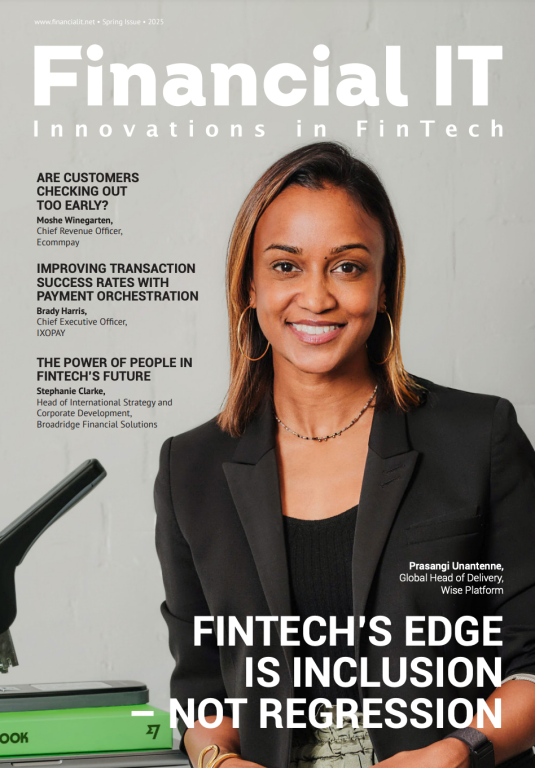Published
- 09:00 am
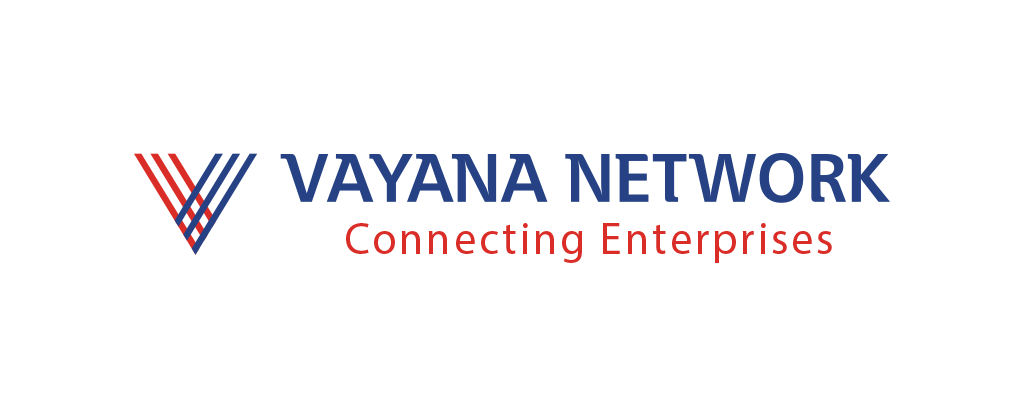
India’s largest trade finance platform, Vayana Network, announced the raising of INR 283 crore in Series C funding round. Vayana saw participation from existing and new investors, including Chiratae Ventures, CDC group, Jungle Ventures, March Capital, Marshall Wace and some of the large family offices from India and abroad.
Sharing his thoughts, Ram Iyer, Founder and CEO, Vayana Network said, “Over the last 4 years, we have grown 20x on quarterly financing volumes and have reached USD 8 bn in total financing to date. But more than these numbers, we have always defined our role as enablers who provide access to affordable and convenient finance to every member of the supply chain. We have strongly believed that every segment of the supply chain and for every type of trade, there needs to be a relevant product that allows the business to grow sustainably. Given our strong presence in credit enabling infrastructure such as GST and e-invoicing coupled with the launch of our Good Business Score (GBS), we have managed to reach the smallest of businesses, connecting them to the largest lenders. Our investors Chiratae and Jungle placed trust in us from the beginning and now we have some incredible global financial institutions, development institutions and growth funds strengthening us to accelerate our journey to this goal.”
TC Meenakshi Sundaram, MD and Co-Founder, Chiratae Ventures, which has been one of the earliest investors in Vayana said, “Vayana has been committed to making trade finance easier, accessible and affordable for all businesses in a supply chain, irrespective of size. This single-minded focus has helped them to grow at a rapid pace and become the market leader. Across the globe and especially in India, MSMEs play the crucial role of being growth engines of an economy; despite which they suffer from delayed payments and lack of access to low-cost formal sources of finance. Vayana not only facilitates access but has worked towards making MSMEs credit ready through its GST compliance and analytics business. In Vayana, we have found the right partner to provide a solution for cash flow based lending, while simultaneously helping small businesses grow sustainably.”
According to Amit Rajpal, Chief Executive Officer Asia and Portfolio Manager of Marshall Wace, “The supply chain industry in India is at a place that requires new-age startups, like Vayana, that build key financial infrastructure for all stakeholders to easily operate with transparency and fluidity.”
Vayana creates supply chain finance programs that help in lowering the credit costs by over 50% and improving the coverage by 100%. Vayana’s compliance business which consists of GST Suvidha Provider (GSP) services holds over 20% market share of the e-invoicing in India. The analytics business (GBS) helps customers to monitor the health of their business. Vayana recently received in-principle approval to set up an ITFS platform at the GIFT City (Gujarat).
Iyer added, “Our vision is to create an ecosystem where financing is embedded in a transaction and becomes an almost invisible part of any B2B trade – as simple as swiping a credit card. With our existing and upcoming suite of products, we will solve related challenges such as market discovery, effortless compliance and monitoring, helping every business in a supply chain operate at its best.”
Related News
- 01:00 am
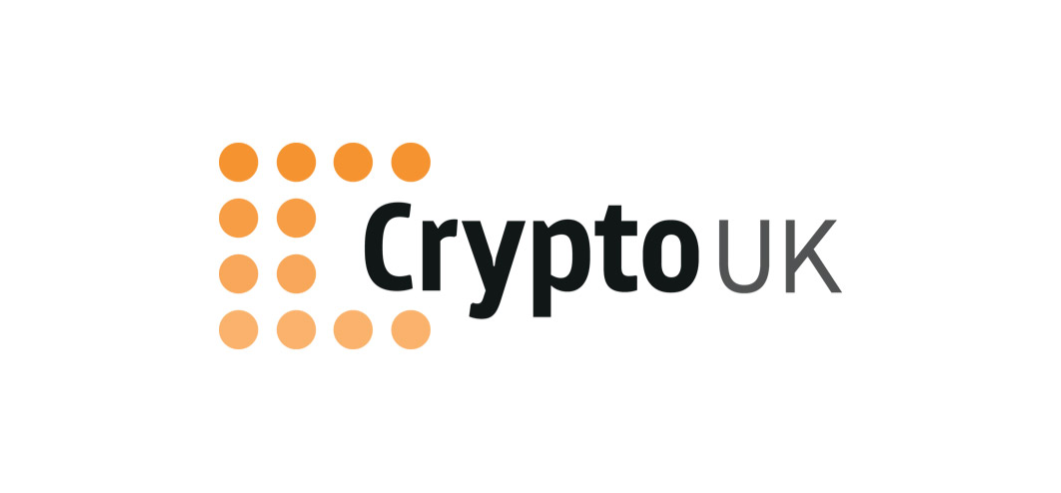
CryptoUK, the trusted voice of the UK crypto industry, has today announced the appointment of Rob McWilliam as its new non-executive director (NED).
Mr McWilliam has held executive roles at two of the most customer-centric businesses in the world, as finance director and vice president of Amazon UK and most recently as chief financial officer of Asda Walmart.
A qualified accountant and experienced NED, Mr McWilliam has current non-executive board appointments at Card Factory PLC and Jisc, the digital agency for UK universities and colleges.
Mr McWilliam, who will take up the role immediately, said: “Crypto is approaching an inflection point of global adoption, and the UK is already the home of many of the world’s most innovative companies, entrepreneurs and developers. I am excited to support CryptoUK in helping create an environment in which the UK is at the centre of innovation, investment and job creation as the technology goes mainstream.
“Whether it’s sending payments, helping us save for the future or simplifying accounting, all of this can be faster, cheaper, more secure and more accessible with crypto.”
Mr McWilliam said that in order to achieve this, he wanted to see the development of a regulatory framework that builds trust, protects customers, whether individuals or companies, and provides crypto businesses with a clear framework within which to operate.
He also wanted to see accelerated adoption of crypto and blockchain technologies across UK businesses, deploying many of the ideas being developed here in Britain, building confidence with business leaders of the benefits of adoption and correcting some of the crypto myths.
Ian Taylor, executive director of CryptoUK, said: “We are thrilled to welcome Rob to the team. His extensive experience in the governance of large customer-centric organisations combined with a history of managing stakeholders including government regulators and a genuine passion for all things crypto make him the perfect non-executive director for CryptoUK.”
CryptoUK is an independent industry body that exists as a cohesive, credible voice for the evolving UK crypto industry, working directly with policymakers and market players to advocate for better education, mutual understanding, and fair and balanced policy.
Related News
- 01:00 am
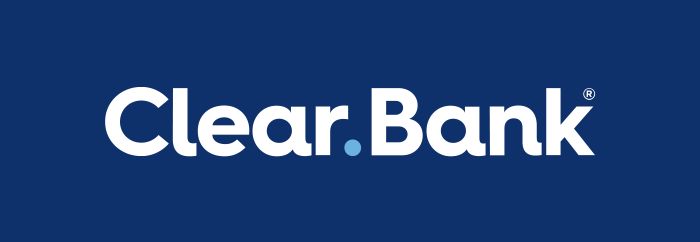
ClearBank, the cloud-based clearing bank, has announced its partnership with Recognise Bank, a subsidiary of City of London Group plc (AIM: CIN) and the UK’s newest SME bank with retail deposit taking capability.
The partnership sees ClearBank becoming Recognise Bank’s clearing bank, providing key account infrastructure and access to the UK’s payment schemes, including vital services, such as Confirmation of Payee (CoP) for Recognise’s newly launched savings account offering.
Recognise Bank is the latest client to use ClearBank’s CoP offering. The addition of CoP is paramount to Recognise Bank’s savings account proposition, as it enhances customer experience and promotes trust between the bank and its customers. ClearBank’s flexible API-driven platform allows Recognise Bank to offer these regulated services quickly and securely.
“Recognise Bank is built differently. It is focused on supporting UK SMEs with a range of specialised financial products designed to address their specific needs, as well as help savers enjoy compelling rates, flexible products and the peace of mind that their money is always safe.” said Charles McManus, CEO at ClearBank. “Our next generation banking technology has played a key role in creating this compelling offering. In particular, it’s fantastic to see our CoP offering in action, doing exactly what it was supposed to do – dramatically reduce the risk of fraud for customers and give them peace of mind. We look forward to continuing to work with Recognise Bank over the coming months and years to further enhance its banking offering.”
“Alongside offering compelling rates to savings customers, our mission is to support SMEs – the backbone of our economy – and to make their banking experience better and easier to navigate,” said Jason Oakley, CEO at Recognise Bank. “Our partnership with ClearBank allows us to provide both our personal savings customers and our SME customers with the ‘always on’ product and services they deserve.”
Related News

Dan Boardman-Weston
CIO at BRI Wealth Management
- 02:00 am
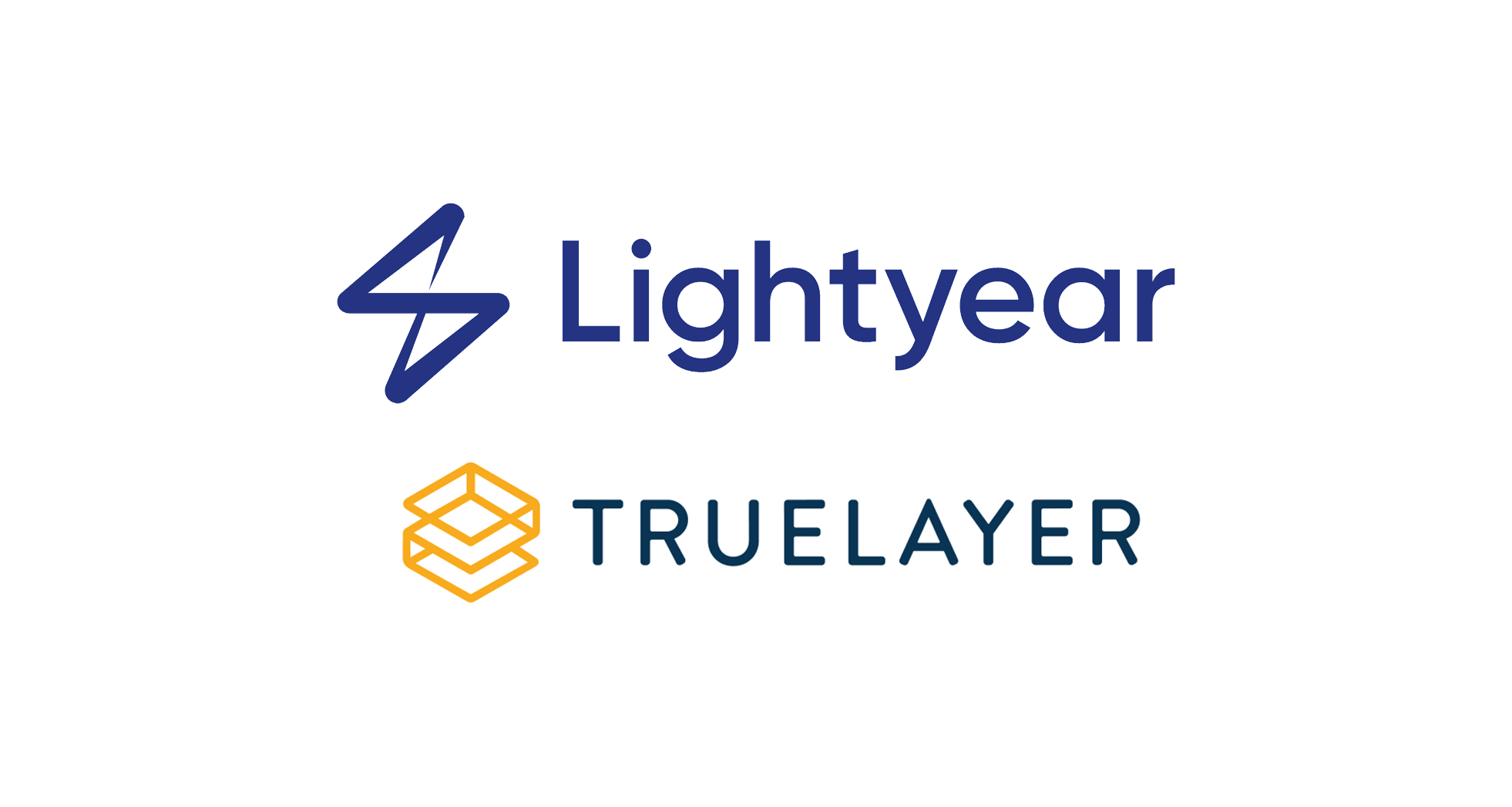
Lightyear is a new investment platform combining multi-currency accounts with access to global markets so customers can invest without hidden fees.
Collaboration with TrueLayer delivers instant account funding using the market-leading open banking platform.
TrueLayer, the global open banking pioneer, today announced a new collaboration with investment platform Lightyear to deliver instant account funding through open banking payments.
Lightyear, founded by ex-Wise duo Martin Sokk and Mihkel Aamer, combines multi-currency accounts with unlimited access to over 1,000 global stocks and ETFs, with no trading fees, no account fees and no FX fees up to £3,000 per month.
As consumer interest in trading and investing platforms continues to grow, so does the expectation of a frictionless experience. Thanks to open banking, payments now present an opportunity for new trading and investment firms to differentiate and drive customer loyalty.
Recognising this, and with its drive to create a highly customer-centric investment platform, Lightyear has implemented instant account-to-account payments using TrueLayer’s Open Banking platform. Lightyear’s customers can now easily connect their primary bank account to the trading app for instant and secure funding using Payments Initiation. This improved process means customers can fund their account with confidence in seconds and make timely investment decisions.
Research by YouGov and TrueLayer has shown that payments directly influence investor satisfaction. More than half (57%) of current and prospective UK investors said they are more likely to trust a provider that offers instant payments. Further, around a fifth of these investors have missed out on an investment opportunity because funds didn’t appear in their accounts quickly enough, causing them to miss trading cycles.
The TrueLayer collaboration also improves Lightyear’s operational efficiency by removing costly transaction fees associated with cards and other payment methods such as PayPal. Higher payment acceptance and instant settlement also means less time spent managing failed payments that can ultimately lead to customer churn.
Martin Sokk, CEO and Co-Founder of Lightyear: “Our goal is to make investing easy and approachable for everyone in Europe. A big part of that means removing all the traditional pain points that create a clunky customer journey. Collaborating with TrueLayer to offer seamless, instant payments improves our customer experience two-fold. Our partnership will allow our customers to invest with confidence and we’re excited to be working with them.”
Jamie Morton, VP Verticals and UK, added: “As more consumers look to build portfolios, they are faced with numerous issues, including slow and inefficient payments that affect how much and how often they can deposit funds to invest and, ultimately, their satisfaction with a platform. However, innovators such as Lightyear have recognised that offering instant deposits creates an opportunity to develop a deeper and more positive relationship with their customers. It is creating clear water between itself and competitors with a compelling customer experience using open banking payments with TrueLayer. We look forward to building on our collaboration in the coming months as the Lightyear platform continues on its journey to build a single, pan-European platform based on the principles of transparency and fairness.”
Related News
- 07:00 am

The two companies will collaborate on issuances by Japanese real estate companies and banks, that will be offered to investors in Japan
Financial services company Tokai Tokyo Financial Holdings and private market exchange ADDX have announced a new partnership to offer fractional private market investment products to investors in Japan, after Tokai Tokyo secured a security tokens license from the Japanese regulator.
The Tokyo Stock Exchange-listed Tokai Tokyo is the holding company for a leading securities brokerage in Japan. The company offers investment and trading services to investors via its network of 144 offices in Japan. It holds consolidated net assets worth US$1.4 billion and has US$38 billion of client assets under management.
Last month, Tokai Tokyo received a license from the Japanese regulator – the Financial Services Agency (FSA) – that allows the company to deal in security tokens, also known as digital securities. With the new license, Tokai Tokyo and ADDX plan to collaborate on security token issuances by Japanese real estate companies and banks. These future deals will be tokenised on the ADDX platform before being distributed by Tokai Tokyo to sophisticated investors in Japan. In addition, Japanese investors will be able to trade the digital securities on the ADDX secondary exchange through Tokai Tokyo.
With this new business partnership, ADDX expects a significant increase to its revenue from the Japanese market. Under the tie-up, Tokai Tokyo will be the first company in Japan to distribute security tokens that are tradeable on a secondary exchange. It will also be the first in Japan to deal in security tokens for non-liquid assets, as previous security token licensees received regulatory approvals for liquid assets.
For Tokai Tokyo and ADDX, this is a partnership that began in 2019 when Tokai Tokyo made its first investment in ADDX, previously known as iSTOX. Tokai Tokyo was also a lead investor in the US$50 million Series A fundraising round by ADDX in January 2021. Other ADDX shareholders include Japanese investors JIC Venture Growth Investments (JIC-VGI) and the Development Bank of Japan (DBJ), Singapore Exchange (SGX) as well as Temasek subsidiary Heliconia Capital.
Yuji Ban, Senior Managing Executive Officer, Tokai Tokyo Financial Holdings, said: “It took a long time to get to this point, but we now have a license for security tokens. Our future collaboration with ADDX will be key to establishing an innovative business model in Japan, where a digital security exchange like ADDX does not exist yet. We and many others in Japan eagerly anticipate working with ADDX to create investment opportunities for Japanese investors and new financing options for issuers. We look forward to working with ADDX on a variety of security token projects in the near future.”
Oi Yee Choo, Chief Commercial Officer of ADDX, said: “Japan has one of the most forward-thinking regulators on the issue of digital securities – alongside those in a handful of other jurisdictions, including Singapore. This prevailing view has once again been validated by the Japanese regulator’s latest move to grant a new security tokens license. As Japan embraces innovation in the capital markets, individuals will, no doubt, be the chief beneficiaries. The community of individual sophisticated investors in Japan is deep and sophisticated. Historically, they have shown a strong interest in real estate investments. But the opportunities open to them – whether in real estate or other asset types – are curtailed because of the high minimum investment sizes in the private markets. Digital securities can fractionalise investments, helping individuals to diversify their portfolios and to invest with a strategy and asset-mix closer to that of family offices or institutions. This promises several positive knock-on effects – from better retirement adequacy to a fairer distribution of wealth.”
She added: “Tokai Tokyo is one of the oldest and most trusted financial companies in Japan, with roots dating back to 1908. We expect this partnership to yield multiple deals over the next few quarters. The possibilities are exciting and limitless, given how the two companies share the same vision on innovation in the financial services and bring complementary strengths to the table.”
Digital securities are securities issued using blockchain and smart contract technology. They are more efficient to administer, because the technology reduces the need for intermediaries and automates manual processes. Digital securities are also regulated and backed by real-world assets. The efficiency of blockchain allows minimum ticket sizes for private market products to be reduced from US$1 million to US$10,000, expanding access for accredited investors to previously out-of-reach assets, including funds, bonds and pre-IPO equity. Issuers benefit from lower fees, the ability to reach a larger investor base, a lower fundraising threshold, as well as a faster speed-to-issuance.
ADDX is a full-service capital markets platform with Monetary Authority of Singapore (MAS) licenses for the issuance, custody, and secondary trading of digital securities. Individual accredited investors using the ADDX platform today come from Asia Pacific, Europe, and the Americas (excluding the US).
Related News
- 05:00 am
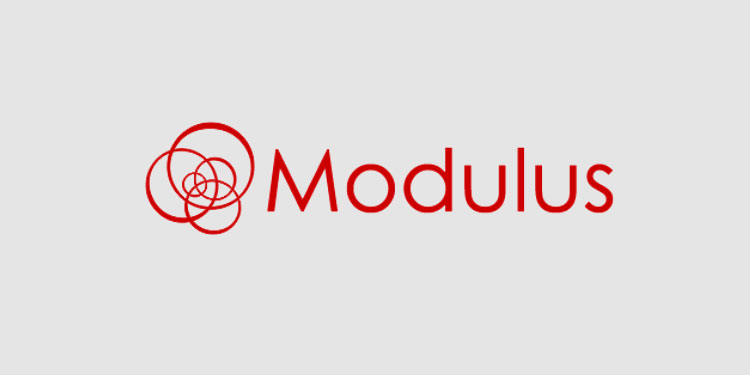
In the immediate aftermath of the Squid Game token scam, in which many crypto antagonists alluded to the lawlessness in the cryptosphere, Joseph James O’Connor, also known as PlugwalkJoe, was indicted on charges including conspiracy to commit computer hacking, conspiracy to commit wire fraud, conspiracy to commit money laundering, and aggravated identity theft as part of his role in stealing nearly a million dollars’ worth of cryptocurrency utilizing a SIM swap attack. The indictment was unsealed by the U.S. Attorney’s Office for the Southern District of New York.
“The problem with laws is they are almost always responsive in nature. We typically create laws and enforce penalties on bad behavior after a bad actor commits a bad act. That means that laws typically need to catch up to where society is, and nowhere is that more evident than in the realm of technology. Quite simply, innovators create new technologies, as well as methods for using them, faster than legislators can create legislation to protect the public. It makes sense. In order to have a law requiring seatbelt-usage, the seatbelt must first be introduced. There’s no need to create laws against texting while driving until phones have the capability to text,” explained Richard Gardner, CEO of Modulus, a US-based developer of ultra-high-performance trading and surveillance technology that powers global equities, derivatives, and digital asset exchanges.
“Some people who have a vested interest in making sure cryptocurrency fails would have you believe that cryptocurrency is dangerous, has no practical use, and is completely unregulated. That’s simply false. Does the industry need greater regulation to prevent bad actors from engaging in chicanery? Of course. But, government is beginning to catch up with blockchain technology. They’re starting to understand how it works. And, I believe, we’re going to continue to see governments around the world creating more guidelines to keep the public safe,” said Gardner.
“To say that we’re still in the Wild West is absurd. Years ago, in the early days of cryptocurrency, there was most definitely a Wild West feel to the industry. But the sector has grown by leaps and bounds, especially over the last twelve months. Regulators understand that the technology isn’t a fad, that it is here to stay, and that it is a truly transformative innovation. PlugwalkJoe getting charged is only the latest example of somebody’s misdeeds in the crypto space catching up with them. The more criminals who are put away, the greater the risk associated with doing bad things. As risk increases, bad actors will be less likely to entertain criminal ideas. We’re at a tipping point, and the risk of getting caught is starting to catch up with the reward if successful. The more high-profile arrests, the faster criminals will realize it,” said Gardner.
Modulus is known throughout the financial technology segment as a leader in the development of ultra-high frequency trading systems and blockchain technologies. Modulus has provided its exchange solution to some of the industry’s most profitable digital asset exchanges, including a well-known multi-billion-dollar cryptocurrency exchange. Over the past twenty years, the company has built technology for the world’s most notable institutions, with a client list which includes NASA, NASDAQ, Goldman Sachs, Merrill Lynch, JP Morgan Chase, Bank of America, Barclays, Siemens, Shell, Yahoo!, Microsoft, Cornell University, and the University of Chicago.
“There’s no doubt that the industry needs more work. In particular, government needs to liaise more with industry insiders. The industry wants to prevent acts of malfeasance as much as the government. It is time for both sides to work together and come up with a commonsense plan that will heighten the security around digital assets while giving innovators the ability to continue to develop the technology,” said Gardner.
Related News
- 07:00 am
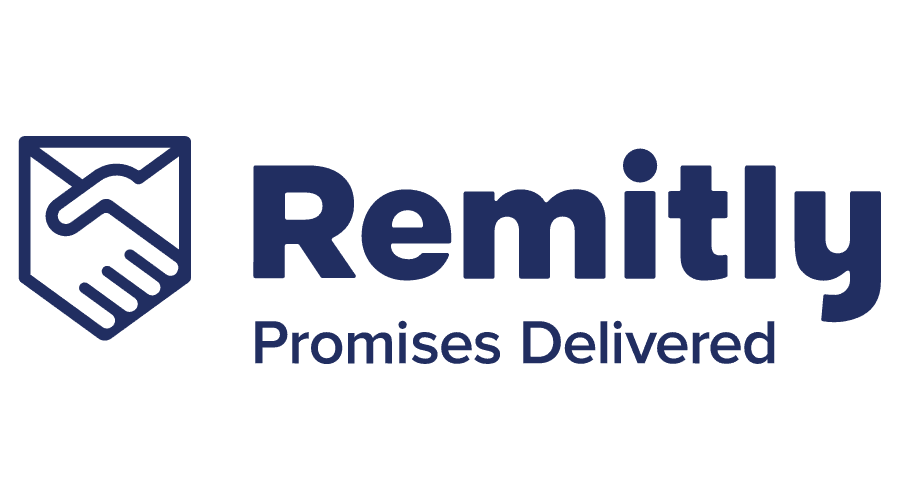
Revenue up 69% year over year
Send Volume up 61% year over year
Active Customers up 51% year over year
Remitly Global, Inc. (NASDAQ: RELY), a leading digital financial services provider for immigrants and their families in over 135 countries around the world, reported results for the third quarter ended September 30, 2021.
“As we exit our first quarter as a public company, we’re incredibly grateful for the position we’re in to both create positive business outcomes, as well as meaningful impact through mission-driven work,” said Matt Oppenheimer, Remitly’s Chief Executive Officer. “Remitly’s vision is to transform the lives of immigrants and their families by providing the most trusted financial services on the planet. Our strong results in the quarter are a direct reflection of our customers' commitment to their families and trust in Remitly.”
Third Quarter 2021 Highlights and Key Operating Data:
(All comparisons relative to the third quarter of 2020)
- Revenue totaled $121.2 million, compared to $71.8 million, up 69% year over year.
- Net loss was $13.0 million, compared to $2.4 million net loss. The increase in Remitly's net loss was primarily due to the $6.9 million non-cash donation of common stock in connection with our Pledge 1% commitment, as well as incremental stock-based compensation expense.
- Adjusted EBITDA decreased to $0.3 million, compared to $0.6 million.
- Send volume increased to $5.2 billion, from $3.2 billion, up 61% year over year.
- Active customers increased to 2.6 million, from 1.7 million, up 51% year over year.
- Average revenue per active customer increased 12% year over year to $47.34.
2021 Financial Outlook:
For fiscal year 2021, Remitly currently expects:
- Total revenue in the range of $445 million to $450 million, representing a growth rate of 73 to 75% year over year.
- Adjusted EBITDA in the range of $(17) million to $(19) million.
A reconciliation of GAAP to non-GAAP financial measures has been provided in the financial statement tables included in this earnings release. An explanation of these measures is also included below under the heading “Non-GAAP Financial Measures.” We have not provided a quantitative reconciliation of forecasted Adjusted EBITDA to forecasted GAAP net income (loss) or to forecasted GAAP income (loss) before income taxes within this earnings release because we cannot, without unreasonable effort, calculate certain reconciling items with confidence due to the variability, complexity and limited visibility of the adjusting items that would be excluded from forecasted Adjusted EBITDA. These items include but are not limited to income taxes and stock-based compensation expense which are directly impacted by unpredictable fluctuations in the market price of our common stock.
Webcast Information
Remitly will host a webcast at 5:00 PM Eastern Time on Wednesday, November 10, 2021 to discuss its third quarter 2021 financial results. The live webcast will be accessible on Remitly’s website at https://ir.remitly.com/. A webcast replay will be available on our website at https://ir.remitly.com/ following the live event.
We have used, and intend to continue to use, the Investor Relations section of our website at https://ir.remitly.com as a means of disclosing material non-public information and for complying with our disclosure obligations under Regulation FD.
Non-GAAP Financial Measures
Some of the financial information and data contained in this presentation, such as adjusted EBITDA and non-GAAP operating expenses, have not been prepared in accordance with United States generally accepted accounting principles ("GAAP"). We regularly review our key business metrics and non-GAAP financial measures to evaluate our performance, identify trends affecting our business, prepare financial projections, and make strategic decisions. We believe that these key business metrics and non-GAAP financial measures provide meaningful supplemental information for management and investors in assessing our historical and future operating performance. Adjusted EBITDA and non-GAAP operating expenses are key output measures used by our management to evaluate our operating performance, inform future operating plans, and make strategic long-term decisions, including those relating to operating expenses and the allocation of internal resources. Remitly believes that the use of adjusted EBITDA and non-GAAP operating expenses provide additional tools to assess operational performance and trends in, and in comparing Remitly’s financial measures with, other similar companies, many of which present similar non-GAAP financial measures to investors. Remitly’s non-GAAP financial measures may be different from non-GAAP financial measures used by other companies. The presentation of non-GAAP financial measures is not intended to be considered in isolation or as a substitute for, or superior to, financial measures determined in accordance with GAAP. Because of the limitations of non-GAAP financial measures, you should consider the non-GAAP financial measures presented herein in conjunction with Remitly’s financial statements and the related notes thereto. Please refer to the non-GAAP reconciliations in this press release for a reconciliation of these non-GAAP financial measures to the most comparable financial measure prepared in accordance with GAAP.
We calculate adjusted EBITDA as net loss adjusted by i) interest expense, net; ii) provision for income taxes; iii) noncash charge of depreciation and amortization; iv) other expense (income), net, including gains and losses from the remeasurement of foreign currency assets and liabilities into their functional currency; and v) non-cash stock-based compensation expense, as well as non-cash charges associated with our donation of common stock in connection with our Pledge 1% commitment. We calculate non-GAAP operating expenses as our GAAP operating expenses adjusted by i) non-cash stock-based compensation expense, as well as ii) non-cash charges associated with our donation of common stock in connection with our Pledge 1% commitment.
Forward Looking Statements
This press release contains forward-looking statements within the meaning of the Private Securities Litigation Reform Act of 1995. All statements other than statements of historical fact are forward-looking statements. These statements include, but are not limited to, statements regarding our future operating results and financial position, including our fiscal year 2021 financial outlook, including forecasted fiscal year 2021 revenue and adjusted EBITDA, anticipated future expenses and investments, expectations relating to certain of our key financial and operating metrics, our business strategy and plans, market growth, our market position and potential market opportunities, and our objectives for future operations. The words “believe,” “may,” “will,” “estimate,” “potential,” “continue,” “anticipate,” “intend,” “expect,” “could,” “would,” “project,” “plan,” “target,” and similar expressions are intended to identify forward-looking statements. Forward-looking statements are based on management’s expectations, assumptions, and projections based on information available at the time the statements were made. These forward-looking statements are subject to a number of risks, uncertainties, and assumptions, including risks and uncertainties related to: our ability to successfully execute our business and growth strategy, our ability to achieve and maintain future profitability, our ability to further penetrate our existing customer base and expand our customer base in existing and new corridors, our ability to expand into broader financial services, our ability to expand internationally, the effects of seasonal trends on our results of operations, our expectations concerning relationships with third parties, including strategic, banking and disbursement partners, our ability to obtain, maintain, protect, and enhance our intellectual property and other proprietary rights, our ability to keep data and our technology platform secure, the success of any acquisitions or investments that we make, our ability to compete effectively, and our ability to stay in compliance applicable laws and regulations, our ability to buy foreign currency at generally advantageous rates, and the effects of changes to immigration laws, macroeconomic conditions and geopolitical forces on our customers and business operations. It is not possible for our management to predict all risks, nor can we assess the impact of all factors on our business or the extent to which any factor, or combination of factors, may cause actual results to differ materially from those contained in any forward-looking statements we may make. In light of these risks, uncertainties, and assumptions, our actual results could differ materially and adversely from those anticipated or implied in the forward-looking statements. Further information on risks that could cause actual results to differ materially from forecasted results are included in our filings with the Securities and Exchange Commission (SEC) including our final Prospectus dated September 22, 2021, filed with the SEC pursuant to Rule 424(b), copies of which are available on our website at https://ir.remitly.com and on the SEC’s website at www.sec.gov. Except as required by law, we assume no obligation to update these forward-looking statements, or to update the reasons if actual results differ materially from those anticipated in the forward-looking statements.
Related News
- 07:00 am

Agencies Will Examine for Compliance with COVID-19 Protections
Today, the Consumer Financial Protection Bureau (CFPB), jointly with other government agencies, announced a return to enforcement of critical protections for families and homeowners. Those protections, put in place in the wake of the Great Recession to prevent another foreclosure crisis, give families the chance to find alternatives to foreclosure before losing their home. With the majority of the over one million remaining COVID-19 forbearances expected to end before the end of the year, struggling homeowners will need these protections to avoid foreclosure.
“Failures by mortgage servicers and regulators worsened the impact of the economic crisis a decade ago,” said CFPB Director Rohit Chopra. “Regulators have learned their lesson, and we will be scrutinizing servicers to ensure they are doing all they can to help homeowners and follow the law."
Most homeowners make their monthly mortgage payment to a mortgage servicer. Mortgage servicers collect the payments on behalf of the entity that owns the loan and are hired and fired by that entity, not the homeowner. Homeowners cannot shop for a new servicer, no matter how badly they are mistreated. As a result, borrowers cannot exercise market power to discipline mortgage servicers and, absent government intervention, have no defense against a servicer’s abuse of market dominance.
The CFPB issued the joint statement with the Board of Governors of the Federal Reserve System, the Federal Deposit Insurance Corporation, the National Credit Union Administration, the Office of the Comptroller of the Currency, and state financial regulators. The statement makes clear that the agencies will apply their respective supervisory and enforcement authorities to protect homeowners and address any compliance failures. The joint statement provides that a previous joint statement issued in April 2020, which stated that the agencies would relax supervisory and enforcement oversight with respect to certain requirements in Regulation X, will no longer apply. The agencies believe that the servicers have had adequate time to adjust their operations to comply with the timelines and other requirements of Regulation X and servicers will now be expected to fully comply with the rules.
The CFPB also released a report summarizing its work to help struggling homeowners and avert another foreclosure crisis. This work includes:
- Conducting prioritized assessments, or targeted supervisory reviews, designed to obtain real-time information from mortgage services due to the elevated risk of consumer harm because of the pandemic.
- Reminding servicers that “unprepared is unacceptable,” and that servicers need to dedicate enough resources and staff to ensure they can communicate clearly with homeowners, effectively assist borrowers, and reduce avoidable foreclosures during the surge in forbearance exits this fall.
- Implementing temporary procedural safeguards to help ensure that borrowers have time before foreclosure to explore their options, including loan modifications and selling their homes.
- Analyzing consumer complaint data about mortgage servicing and mortgage forbearances.
- Conducting additional, targeted review of high-risk complaints related to COVID-19 forbearance.
- Analyzing and publishing mortgage servicers’ COVID-19 pandemic response.
- Conducting original research documenting that Black and Hispanic communities, and low-income communities across racial and ethnic groups are at increased risk of another foreclosure crisis due to the disproportionate concentration of mortgage forbearances and delinquencies in those communities;
- Creating an online housing hub website at www.consumerfinance.gov/housing, in partnership with other federal agencies, to connect homeowners, renters and landlords with information about CARES Act assistance and protections.
- Creating and distributing homeowner outreach materials, in English and other languages, that servicers and housing counselors can use to help homeowners affected by the COVID-19 pandemic.
- The CFPB will continue to monitor closely the performance of mortgage servicers to prevent avoidable foreclosures to the maximum extent possible and will not hesitate to take supervisory or enforcement action if warranted.
Read the CFPB report: “Mortgage Servicing Effort in Response to the COVID-19 Pandemic"
Related News
- 09:00 am
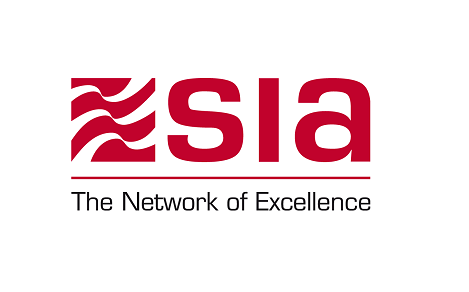
Revenues of €589.1 million (+12% YoY)
EBITDA of €237.3 million (+21.7% YoY)
- Issuing and acquiring transaction volumes back to pre-Covid growth levels
In the third quarter of 2021 revenues of €207.5 million (+9% YoY) and EBITDA of €91.6 million (+12% YoY), confirming the growth trend of the volumes processed
Rapid increase of volumes in Q3 2021 following gradual easing of restrictions: in September +22% YoY, and +17% compared to the same month in 2019
Guidance 2021: expected growth in revenues in the year of around +10% and EBITDA of around +15%.
SIA's Board of Directors, meeting under the chairmanship of Federico Lovadina, approved the consolidated financial results at 30 September 2021, which showed strong growth compared to the first nine months of 2020.
CONSOLIDATED FINANCIAL RESULTS AT 30 SEPTEMBER 2021
€M | 9M 2021 | 9M 2020 | 9M 2021 vs 9M 2020 | ||||||
Card & Merchant Solutions | 401.2 | 355.9 | 12.7% | ||||||
Digital Payments Solutions | 118.9 | 105.0 | 13.2% | ||||||
Capital Market & Network Solutions | 69.0 | 64.9 | 6.3% | ||||||
Total Revenues | 589.1 | 525.8 | 12.0% | ||||||
Personnel Costs | 163.7 | 150.3 | 8.9% | ||||||
Operating Costs | 188.1 | 180.6 | 4.1% | ||||||
Total Costs | 351.8 | 330.9 | 6.3% | ||||||
EBITDA | 237.3 | 194.9 | 21.7% | ||||||
In the first nine months of 2021, SIA Group reported revenues of €589.1 million, up 12% YoY, entirely on an organic basis. Revenues maintained a geographical diversification in line with 2020 (approximately 70% in Italy and 30% abroad). In the third quarter of 2021, SIA Group revenues amounted to €207.5 million (+9%) compared to the same period last year.
EBITDA amounted to €237.3 million, up 21.7% on the same period last year, with an EBITDA margin of 40%, up 3% compared to the level recorded in the third quarter of 2020, driven by payment transaction volumes returning to pre-Covid 19 growth levels. In the third quarter of 2021, the SIA Group reported EBITDA of €91.6 million, up 12% on the same quarter of the previous year.
At the level of the market segments in which SIA Group operates, the following results were obtained in the first nine months of the year:
Card & Merchant Solutions, representing 68% of the total revenues generated by the Group - split approximately between activities linked to issuing (63%) and acquiring (37%) services – recorded revenues of €401.2 million, up 12.7% on the same period of 2020. In the first nine months of this year, the segment benefited from a significant growth in revenues mainly related to issuing (+16% YoY) and acquiring (+11% YoY) transactions, thanks to the positive trend in volumes and new customers becoming fully operational;
Digital Payments Solutions, representing 20% of the Group's total revenues, recorded revenues of €118.9 million, up 13.2% on the same period of 2020. The segment was positively impacted by the performance of revenues from volumes processed in particular in Clearing and Gateway services (+13% YoY) and the development of projects in the Clearing and Public Sector areas;
Capital Market & Network Solutions, representing 12% of the Group's total revenues, reported revenues of €69 million, up 6.3% on the same period of 2020, due to growth in Network Services volumes (+22% YoY).
In the first nine months of 2021, costs amounted to €351.8 million, an increase of 6.3% compared to the same period in 2020 which already included some measures for reduction of non-recurring costs due to the Covid emergency. This rise is due to higher personnel costs (+8.9% YoY) incurred for organic growth and higher operating costs (+4.1% YoY) related to the increase in business activities.
As of 30 September 2021, Net Financial Debt amounted to €819 million compared to €910.4 million as of 30 June 2021. The net debt/EBITDA ratio as of September 2021 was 2.5x, down from 2.9x in the previous quarter.
SIA has shown a high degree of resilience in its business model and its ability to seize the positive trends in the payments segment as well as to initiate and complete new partnerships with banks and major corporates, despite the current ever-changing scenario and the inevitable uncertainty surrounding the speed of recovery.
Assuming no major new restrictions in the geographic areas in which it operates occur, SIA expects to achieve a growth in revenues of approximately +10% YoY and an increase in EBITDA of approximately +15% YoY by year-end 2021.
BUSINESS EVENTS AND INITIATIVES STARTED UP IN THE THIRD QUARTER OF 2021
Corporate events
On 30 September - implementing the resolutions passed by the SIA and SIA Advisor Board Meetings on 21 June 2021 - the merger by incorporation of SIA Advisor into SIA was signed. The deal forms part of the wider process of rationalization and reorganization of the companies in the SIA Group.
Business Events
SIA has become part of Fin+Tech, the Accelerator dedicated to fintech and insurtech startups of the CDP National Accelerators Network, born out of an initiative of CDP Venture Capital together with Digital Magics, Startupbootcamp and Fintech District, and whose institutional partners include Consob, through its Consob Tech working group.
The three-year project will see startups collaborating with leading companies in the financial and insurance sectors, with the dual aim of developing and perfecting the startups' solutions and accelerating the digital transformation of the companies.
SIA, co-investor and corporate partner of the project since its conception, will provide its support to the program and to the startups through its expertise, technology and strong position in the field of open innovation.
Card & Merchant Solutions
BAWAG P.S.K., one of Austria's largest banks, has entrusted SIA with the management and processing of credit and prepaid cards issued by BAWAG P.S.K., easybank and PayLife.
Digital Payment Solutions
SIA has been chosen by Banking Circle, a new Luxembourg-based bank, for the launch in Europe of its new instant payment service connecting to Eurosystem's TARGET Instant Payment Settlement (TIPS).
Payments Canada announced the go-live of the first release of Lynx, the new national high-value payment system created by SIA which represents a key part of the multi-year initiative undertaken by Payments Canada to modernize and transform the national payments ecosystem. This is the first-ever project for SIA in North America, confirming our role as a technology partner to the banking and financial communities.
Capital Market & Network Solutions
CBI, the collaborative hub for technological innovation and digitalization of the financial industry, has entrusted Nexi and SIA to redesign the technology architecture interconnecting all banks and CBI’s Payment Service Provider (PSP) clients. The new architecture, called CBI Hub Cloud, will enable the migration of CBI infrastructures to a private, dedicated Cloud technology, based on the CBI Globe open banking platform.
SIGNIFICANT EVENTS OCCURRING AFTER THE CLOSE OF THE QUARTER
On 14 October, the Italian Antitrust Authority (AGCM) issued a conditional authorization for the merger by incorporation of SIA S.p.A. into Nexi S.p.A. This authorization follows those already obtained from the respective authorities in Poland, Austria and Germany. As far as the card processing of the PagoBANCOMAT Circuit and non-SEPA clearing markets - identified as domestic - are concerned, the Authority ordered specific remedies, of a behavioral nature in the first case and of a structural nature in the second, which will be implemented within the timeframe agreed. With the authorization obtained, the process towards the merger continues and will be completed as soon as possible while taking into account the necessary technical and authorization fulfilments, including authorizations from the German regulatory authority and those from the Danish authority for the investment sector, as well as from Consob, the Italian National Commission for Companies and the Stock Exchange.
On 28 October, ASCAI (Association for the development of corporate communication in Italy) awarded SIA the prize for its digital radio "SIA on-air" as the best corporate publication in a competition which saw the participation of forty leading Italian companies operating in twenty different sectors. The "Best Radio" award was assigned by a jury of qualified professionals for having fully succeeded in bringing the Group's employees together during the long period in which they worked from home, achieving service and engagement objectives while ensuring great quality.

